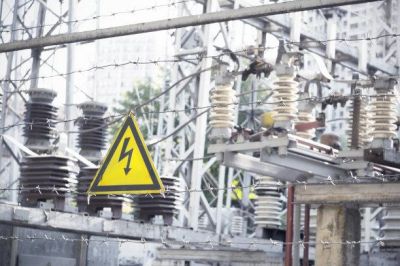Yes, aluminum does conduct electricity. In fact, it’s one of the most widely used materials for electrical applications due to its excellent conductivity and light weight. While not as conductive as copper, aluminum offers a high level of electrical conductivity that makes it suitable for a variety of uses, especially where weight and cost are important considerations.

Aluminum is an element in the boron group, with an atomic number of 13. It is a soft, lightweight, ductile metal with a silvery appearance when freshly cut. The conductivity of a material is primarily determined by its atomic structure and the ease with which electrons can move through it.
| Series | Alloying Element(s) | Typical Composition (% by weight) | Common Uses |
|---|---|---|---|
| 1xxx | None (Pure Aluminum) | 99%+ Aluminum | Electrical conductors, chemical equipment |
| 2xxx | Copper | Al, 3.8-4.9 Cu, <1.6 Mg, <0.3 Mn, <0.2 Si, <0.1 Zn | Aircraft structures, aerospace components |
| 3xxx | Manganese | Al, 1.0-1.5 Mn, <0.7 Fe, <0.6 Si | Cooking utensils, heat exchangers, roofing |
| 4xxx | Silicon | Al, 4.5-6.0 Si, <0.7 Fe, <0.25 Cu, <0.35 Mg | Welding rods, brazing, automotive parts |
| 5xxx | Magnesium | Al, 0.5-5.0 Mg, <0.7 Fe, <0.2 Cu, <0.2 Cr, <0.1 Zn | Marine, automotive, and aviation applications |
| 6xxx | Magnesium and Silicon | Al, 0.4-1.2 Si, 0.8-1.2 Mg, <0.7 Fe, <0.15 Cu | Structural applications, automotive frames |
| 7xxx | Zinc and Magnesium | Al, 4.0-8.0 Zn, 0.4-3.1 Mg, <1.5 Cu | Aircraft manufacturing, military vehicles, high-strength parts |
| 8xxx | Other elements (e.g., Lithium, Iron) | Varies widely depending on specific applications | Conductors, cooking utensils, etc. |
Aluminum is a very good electrical conductor, although it isn’t quite as effective as copper. Copper has a higher conductivity (about 60% more conductive than aluminum), but aluminum stands out because of its unique properties:
Yes, aluminum finishing can impact its electrical conductivity. Various surface treatments can affect how well electricity flows through aluminum:
Oxidation: When exposed to air, aluminum naturally forms a thin oxide layer that is highly resistant to corrosion. However, this oxide layer is also non-conductive, which can interfere with electrical connections if not properly managed. This is why connections involving aluminum are often coated with conductive grease to prevent oxidation and maintain good conductivity.
Anodizing: Anodizing is a process that intentionally thickens the oxide layer on aluminum to improve corrosion resistance and appearance. While this process enhances durability, it makes the surface non-conductive. Anodized aluminum is, therefore, unsuitable for applications where direct electrical conductivity is needed unless specific parts are masked off or treated to remain conductive.
Plating (e.g., Tin or Silver): To improve conductivity and prevent oxidation, aluminum can be plated with more conductive metals like tin or silver. This treatment ensures reliable, long-term electrical connections, especially in critical applications like power distribution and electronic components.
The fact that copper is not magnetic makes it highly valuable in various industries where magnetism needs to be minimized or controlled. Some common applications include:
Electrical Wiring: Copper’s excellent conductivity and non-magnetic properties make it ideal for use in electrical systems. The lack of magnetism ensures that copper wiring doesn’t interfere with magnetic fields, which is especially important in sensitive equipment.
Electromagnets: Copper is often used to make the coils of electromagnets, such as those found in electric motors or transformers. Copper’s ability to conduct electricity without interacting with the magnetic field is key in these devices.
MRI Machines: In medical imaging, copper is used in magnetic resonance imaging (MRI) machines. The non-magnetic nature of copper ensures that it doesn’t interfere with the strong magnetic fields used to create images.
Aluminum is indeed an effective and widely used electrical conductor, valued for its lightweight nature, cost-efficiency, and high conductivity-to-weight ratio. Although it isn’t as conductive as copper, its unique advantages make it a preferred material for many electrical applications, from power transmission lines to consumer electronics. While surface finishing can influence its conductivity, proper treatment ensures aluminum remains a reliable conductor, capable of meeting the demands of various industries. This combination of properties continues to make aluminum a popular and efficient choice in electrical applications worldwide.
Yes, aluminum is a good conductor of electricity. While it’s not as conductive as copper, aluminum has about 61% of copper’s conductivity. Due to its lightweight and cost-effectiveness, aluminum is widely used in electrical applications such as power transmission lines, electrical wiring, and electrical motors, where weight and cost are significant considerations.
This statement is actually incorrect because aluminum does conduct electricity. However, aluminum forms a thin oxide layer on its surface when exposed to air, which is non-conductive. This oxide layer can sometimes interfere with electrical connections, but the underlying aluminum still remains a good conductor. The non-conductive oxide layer can be managed or removed to ensure efficient conductivity.
Aluminum is not a bad conductor; in fact, it’s a good conductor of electricity. However, compared to copper, aluminum has a lower conductivity per unit volume. This doesn’t mean it’s inefficient—aluminum’s excellent conductivity-to-weight ratio makes it an ideal choice for many applications, especially where weight savings are crucial, such as in power transmission and aerospace industries.
Most metals are good conductors of electricity, but some metals have very poor electrical conductivity. For example:
If you found this article good, feel free to share it on your other social media platforms.
Copyright@2023 Huaxiao Metal Corporation Limited . All rights are reserved
WhatsApp us
Feel free to contact us!
If you need our products, please leave us a message with the specific specifications and quantity through the window on the right!
Reply within 24 hours